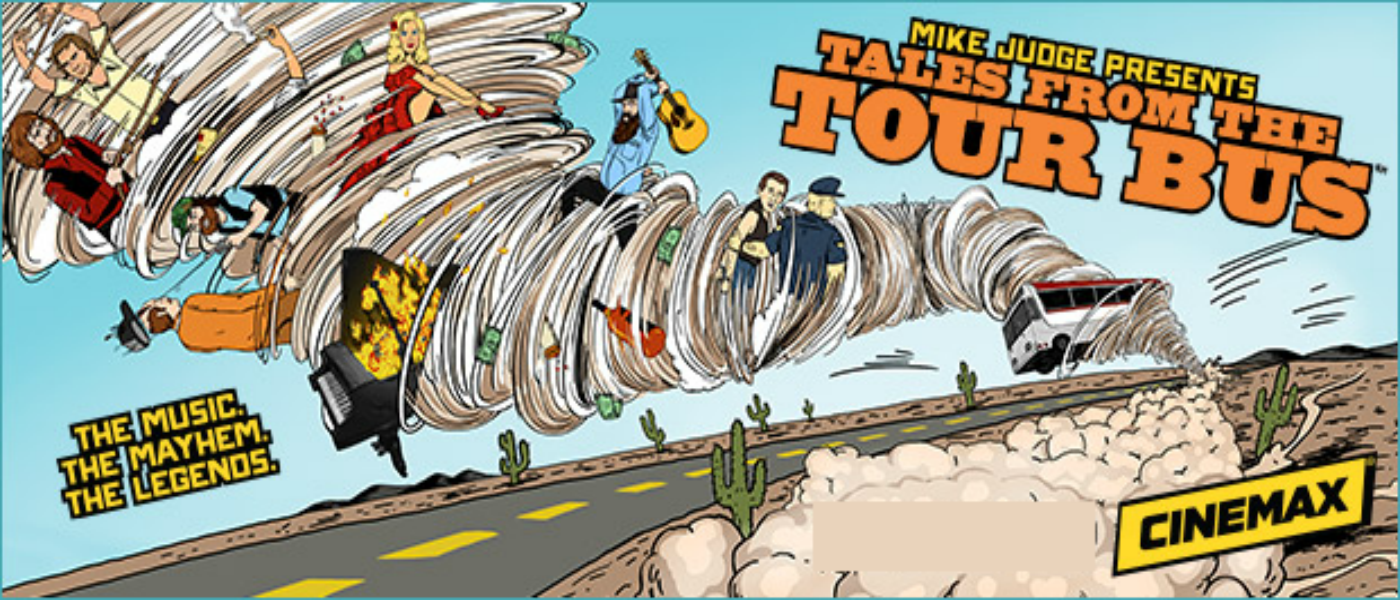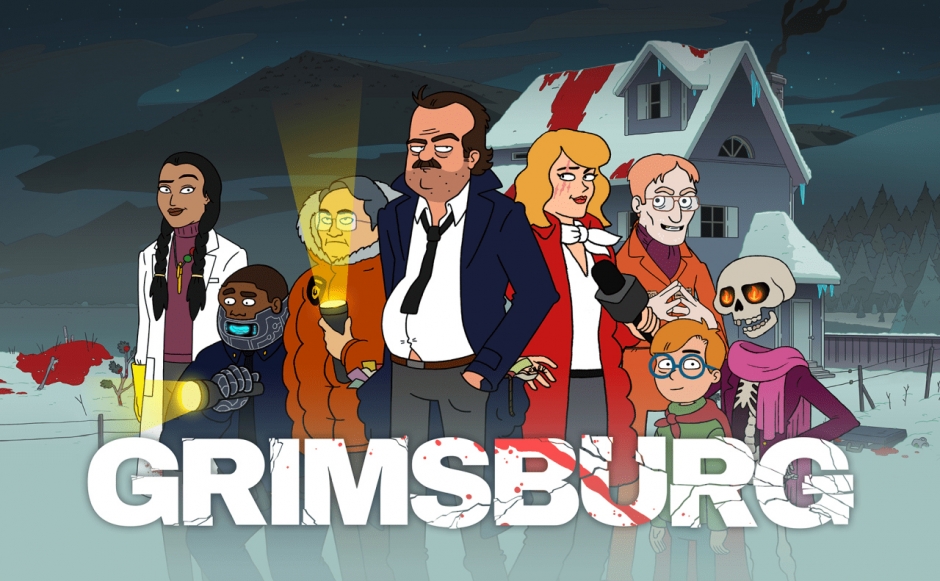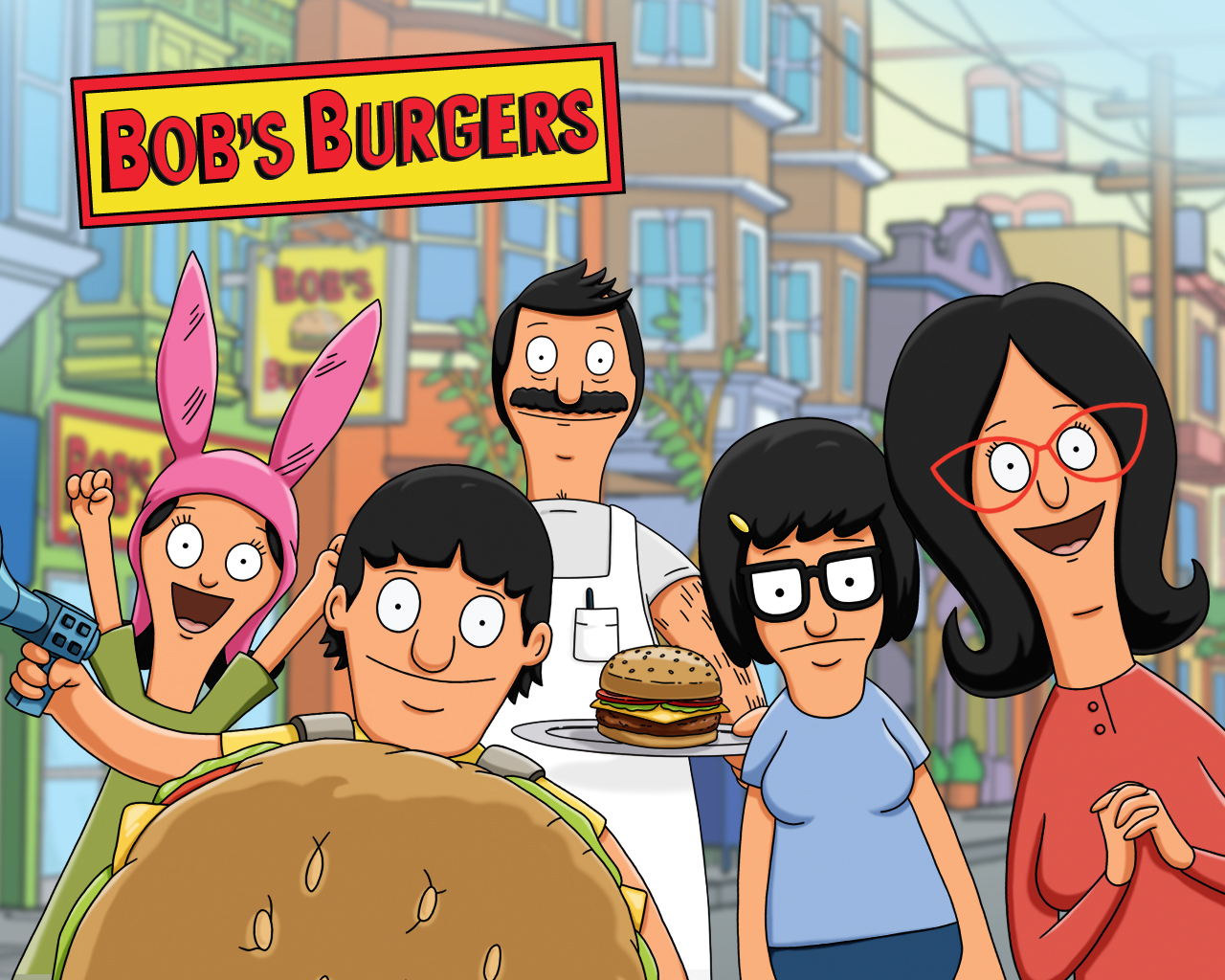Review: Mike Judge Presents Tales from the Tour Bus “Waylon Jennings Part 2”
He’d always been crazy, but it kept him from going insane.
OVERVIEW (SPOILERS? I MEAN, IT’S HISTORY)
We continue the tale of the man in the black hat, Waylon Jennings. Billy Joe Shaver, a man we’ve covered at length but is intrinsically linked to Jennings’ career, remembers a concert where he blew up an empty concert hall after being denied pay. This new attitude came courtesy of Richie Albright, a drummer for Jennings since the early 60’s, who noticed how much his health was being impacted by overusing prescription meds and showed him a better solution. This being the music business, this solution was cocaine. And according to Albright, “the demon took over.” Though demon or not, this was the year Jennings parted from Nashville and donned his signature ebony headwear.
Billy Ray Reynolds gives us another side and continuation of a story we’ve heard from Shaver’s perspective, specifically how the two met at one of Willie Nelson’s concerts and agreed to make an album. Only, according to Shaver, Jennings never held up his end. Tracking him down at a recording studio, Shaver gave him two options: either listen to his songs or get an asswhooping. So, Jennings gave him a deal, that being to listen to what he had, but if he got sick of them at any point, Shaver was out. Well, luckily for Shaver, one of those songs was Honkey Tonk Heroes, which not only finally changed Jennings’ mind to keep Shaver around but also sparked the Outlaw Country movement which emboldened artists straying from the restricting guidelines set by Nashville.
Carter and Barney Robinson, two who came on after working with Jennings’ wife, Jessi Colter, recall his “ornery” back and forth with her, while Ron Haffkine and Kyle Lehning recall “Hillbilly Central”, the headquarters for Jennings during the height of the Outlaw movement, also noting that he basically fits the pattern of the subjects of this show, namely that they were poor and self-taught. Hillbilly Central became almost an odd compound of eccentrics like Kinky Friedman and Captain Midnight, but also produced the first country record out of Nashville to go platinum: “Wanted!: The Outlaws.” Though with that success came less than ideal admirers, The Hell’s Angels. They guarded him and his crew during shows even babysat his kids and gave them firearms for gifts. But this all culminated in another monstrosity of a hit, “Luckenbach, Texas.”
And then, one day, the cocaine became a problem. After receiving a kilo through the mail, the FBI and DEA came banging in to find it. In an Ocean’s Eleven-esque improvised switcheroo, the group managed to flush it all down the toilet with the feds none the wiser. And then after that, another million dollar hit.
Though like all good things, destructive drug habits must come to an end. I mean, they don’t always, which is tragic, but in this case, they did. By 1984, Jennings finally went cold turkey with the coke, much to the relief of all of his loved ones, especially his wife. “He was blessed because he chose people to be in his life that loved him and who will always love him. And dadgum it, he left too soon.”
OUR TAKE
This episode, in a sense, acted as the close to a sort of trilogy including the Billy Joe Shaver episode, seeing how it expands on things from that episode and how Shaver contributed to the Outlaw movement. Though the latter two-thirds were about Jennings, so that’s what we’re here for.
And really, this seems like the kind of thing Mike Judge was hoping to sink his teeth into when making this whole show, and probably what you need to show people who otherwise would never bother with the bigger figures of country music, like me. These outlaws are almost a Mount Olympus of eccentricities, which influenced the turn of the genre, or at least that’s as far as I can tell going by just these episodes as sources.
That said, it does seem odd they never got into exactly how Jennings died, that being complications with diabetes. Though I suppose that wouldn’t really fit in with everything else being discussed, so it’s fine. When compiling interesting biographical detail, you do need a direction to what you’re trying to say, and these diseases wouldn’t mesh with that. But I only learned about that from being encouraged to do further research BY this episode, so really it’s a win-win.
Next time, the finale for this season as we cover the Duct Tape Messiah, Blaze Foley.
























"There are also other characters that come and go (also owned by the Warner Bros. Discovery conglomerate media company)."
Huh. Is that just referring to other characters from the show itself, or is this implying that the new season is going to have cameos from other WBD IPs